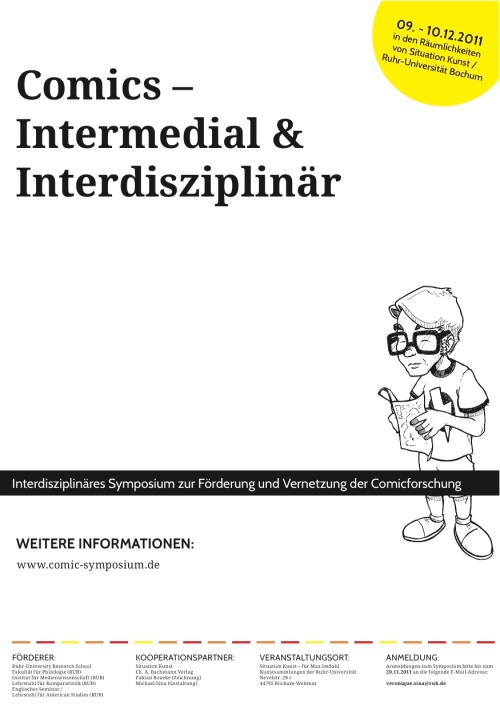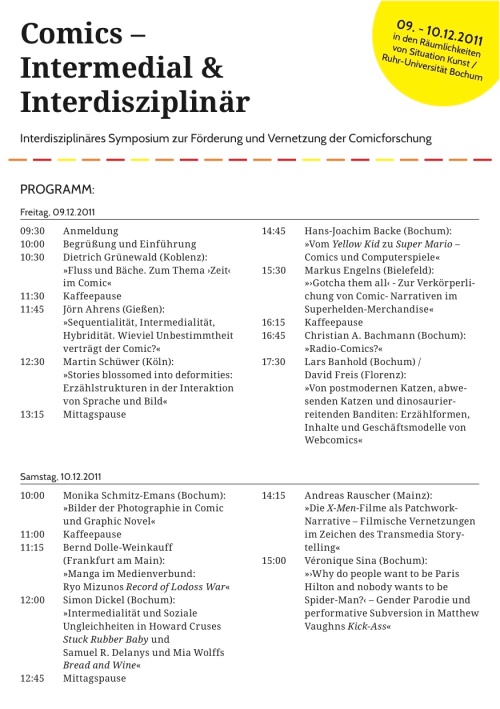“Comics – Intermedial & Interdisziplinär”
9.-10.12.2011 in den Räumlichkeiten von Situation Kunst /
Ruhr-Universität Bochum
Ein interdisziplinäres Symposium zur Förderung und Vernetzung der
Comicforschung.
Seit seinen Anfängen ist der Comic intermediale Verbindungen mit anderen Medien/medialen Formen eingegangen. Dabei haben sich nicht nur Medien, wie z.B. Film oder Fernsehen regelmäßig vom Comic inspirieren lassen. Auch der Comic selbst ist im Laufe seiner Entwicklung sowohl auf inhaltlicher als auch auf formal-ästhetischer Ebene immer wieder von anderen Medien beeinflusst worden. Im Rahmen des zweitägigen Symposiums wird der Forschungsgegenstand Comic aus unterschiedlichen
wissenschaftlichen Perspektiven (Medienwissenschaft, Gender- und Queer
Studies, Literaturwissenschaft, Kulturwissenschaft, Kunstgeschichte
etc.) heraus betrachtet und im Hinblick auf seinen intermedialen Kontext – also mit Blick auf die Frage nach dem Comic in den Medien und den Medien im Comic – beleuchtet. Aufgrund der Integration von Text und Bild stellt der Comic bereits in seiner grundlegenden Beschaffenheit ein intermediales Phänomen dar, daher wird nicht nur das intermediale
Potential des Comics im Verbund mit anderen Medien, sondern auch der
intermediale Charakter des Comics selbst Gegenstand des Symposiums sein.
Bei dem zweitägigen Symposium handelt es sich um eine Kooperation des
Instituts für Medienwissenschaft, dem Lehrstuhl für American Studies und dem Lehrstuhl für Vergleichende Literaturwissenschaften der
Ruhr-Universität Bochum.
Weitere Informationen zum Comic Symposium sind online unter www.comic-symposium.de verfügbar.
Anmeldungen zum Symposium sind bis zum 20.11.2011 möglich.
Bei Interesse schicken Sie bitte eine kurze E-Mail an folgende Adresse:
veronique.sina@rub.de


